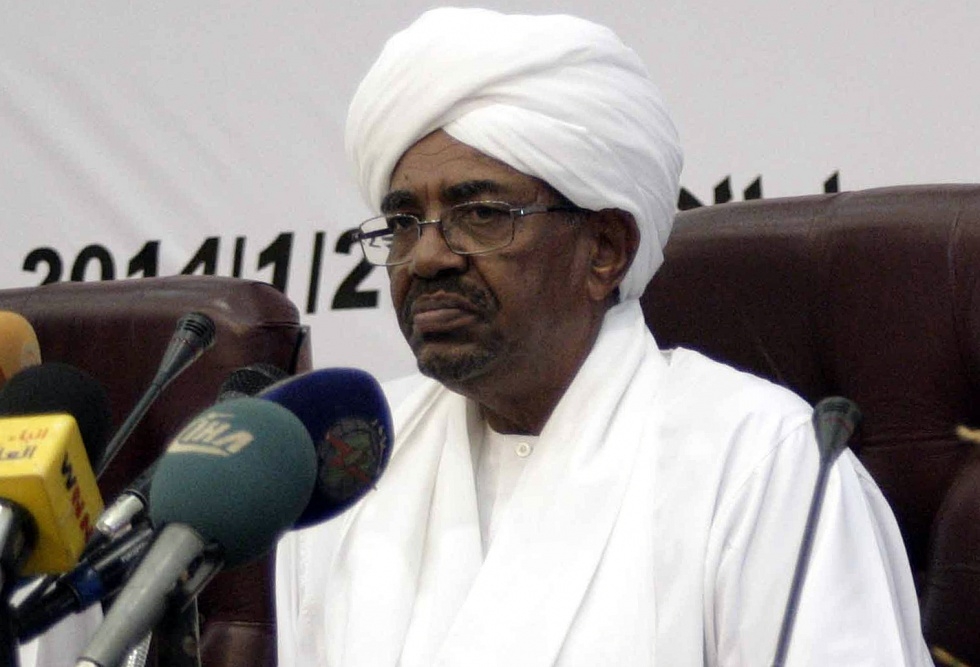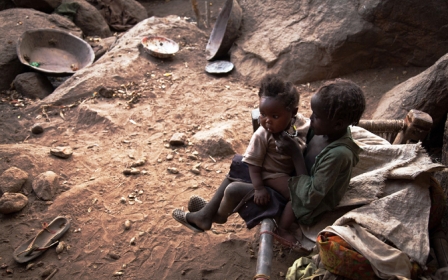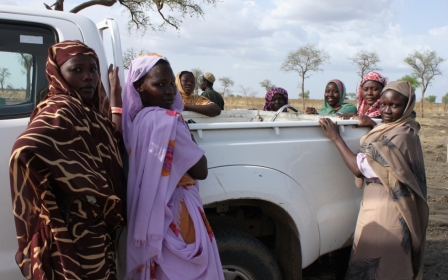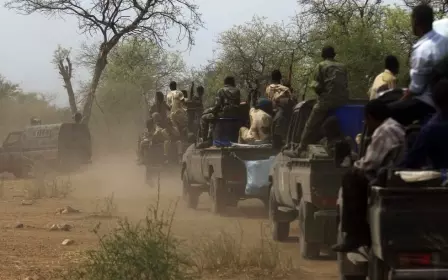Sudan's Bashir begins re-election campaign amid opposition boycott

KHARTOUM – Thousands of supporters of Sudanese President Omar al-Bashir on Tuesday rallied to support his campaign for an April election expected to return him to office amid a boycott from the opposition.
Bashir, 71, was on his way home from the United Arab Emirates and will not attend the rally held by his National Congress Party (NCP) in a football stadium amid a carnival atmosphere, an AFP correspondent said.
The crowd chanted "God is greatest" and "There is no God but God" as they waited for the bill of Sudanese poets and all-star musicians to begin the festivities.
Although not personally present, Bashir gazed down on the crowds from huge banners hung around the stadium with the slogan: "The pioneer who doesn't lie to his people."
A podium was set up on the pitch where singers performed and top NCP officials gave speeches.
Outside the stadium, in the capital's twin city of Omdurman, the streets were choked with buses that had ferried people from around the country for the rally.
The NCP said Bashir himself will personally be campaigning later this week in the state of Jazira, a farming region.
The president has been in the UAE on a four-day visit, flouting the International Criminal Court's (ICC) indictment of him for war crimes in the western region of Darfur.
The ICC decided in December to shelve its inquiry into possible war crimes in Darfur.
The visit was an attempt at a pre-campaign boost for Bashir, giving him a valuable opportunity to say he is enhancing the country's standing.
"He will try to say that Sudan is no longer isolated from other Arab countries" when he returns from Abu Dhabi, said Khaled al-Tijani, a former newspaper editor.
Sudan has been under a US trade embargo since 1997 over various allegations, including rights abuses.
Mostly black insurgents in Darfur rose up against Bashir's Arab-dominated government in 2003 and have been battling his forces since.
Opposition boycott
Sudan's mainstream opposition has announced it will boycott the 13 April elections, which are also for parliament, as it did in 2010.
These include members of the Sudan Call agreement, signed in Ethiopia in December to unite political parties opposed to Bashir, armed groups fighting for his overthrow and civil society groups.
Some have launched a petition calling on Bashir to stand aside - dubbed "Irhal" or "Leave" - which they admit can do little to obstruct the election.
"We are not saying that we want to stop people from going to vote, we are just allowing a forum for those who want to say 'no,'” said Rabah al-Mahdi of Sudan Call's media committee.
The National Electoral Commission has said some 14 candidates are competing with Bashir for the presidency although none of them appeared to start campaigning Tuesday.
Most of them contenders are little known and pose no real threat to his re-election bid.
Despite this, the government appears anxious ahead of the vote and has cracked down on the press, with security agents confiscating the print runs of 14 newspapers on 16 February.
Sudan's National Intelligence and Security Service regularly seizes newspapers over articles it deems inappropriate, but last week's confiscation was one of the broadest crackdowns in recent years.
Amendments to the constitution passed in January gave the state’s security apparatus even greater power than before.
The amendments also gave Bashir the power to appoint state governors, who would otherwise have been chosen by election in April.
Bashir has since pushed for UN-African Union peacekeepers to leave Darfur, in what analysts say is a move to make suppressing the rebellion an easier task.
Middle East Eye propose une couverture et une analyse indépendantes et incomparables du Moyen-Orient, de l’Afrique du Nord et d’autres régions du monde. Pour en savoir plus sur la reprise de ce contenu et les frais qui s’appliquent, veuillez remplir ce formulaire [en anglais]. Pour en savoir plus sur MEE, cliquez ici [en anglais].




